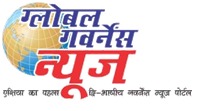GGN NEWS BUREAU
NEW DELHI, 25 JAN 2021
Today, Union Health Minister of Family Welfare, Dr. Harsh Vardhan, chaired the foundation day celebrations and launch of the decadal year of the Indian Council of Medial Research – National Centre for Disease Informatics and Research (ICMR-NCDIR), at Bengaluru. This event was celebrated virtually, through a video conference.
Dr. Harsh Vardhan, also declared the results from the largest wide-ranging national study done on the risk factors and health systems preparation of Non-communicable Diseases (NCD) along with the agenda on use of telemedicine for cancer, diabetes, stroke and heart diseases.
In the beginning, Dr. Harsh Vardhanexpressed his deep appreciation and gratitude on behalf of the whole country to the scientists of ICMR for their immense contribution in planning and implementation to controlling the pandemic.
He said, “The year 2020 brings back memories of gloom due to COVID. Yet, it has also sowed Hope. It was also the year of Science and Scientists. They not only eased the pressure on testing kits by developing indigenous kits but reversed the position completely with indigenous testing kits now being exported worldwide. ICMR was one of the first organizations worldwide to have isolated the virus as well as the mutant strain and has contributed in creating a biorepository of potential drug targets.” “India is now producing and supplying vaccines to many countries out of which one is developed indigenously in entirety; the entire scientific community should be credited for the achievement,” he added.
Conveying, that he is delighted at the release of theNational Non-communicable Disease Monitoring Survey, across India which also tracks cancer, he said, “The National Cancer Registry Program is a very valuable cancer surveillance tool for the country. Actions to tackle cancers benefit a lot from good and reliable data monitoring. This can help in targeted screening of uncommon cancers through mass NCD screening at Ayushman Bharat HWCs”.
He further asked Secretary of Health Research, to explore judicial actions on formingand reporting of all forms of cancer compulsory for better health outcomes.
Dr. Harsh Vardhanexplained the key findings and features of the study. This program was conducted during the year 2017 – 18. The purpose of the survey was to collect trustworthy baseline data on key indicators, i.e. risk factors, select NCDs and health systems response etc., related to the National NCD monitoring framework and NCD Action Plan. This is the first time that, this kind of a comprehensive survey is done, on NCDs using homogeneous tools and methods, covering the age groups of 15-69 years, males and females residing in urban and rural areas all over the country.
The survey encircled a national sample of 600 primary sampling units from 348 districts in 28 States in partnership with 11 reputed institutions across the country.
Dr. Harsh Vardhansaid, “The survey was undertaken to provide baseline information on NCD risk factors and it highlights the need to improve comprehensive multi-sectorial approaches focussed on both prevention and management of NCDs. Regular surveillance of NCDs is critical to monitor the trends and to guide the interventions.”
He also introduced, the Framework for Telemedicine use in Management of Cancer, Diabetes, Cardiovascular Disease and Stroke in Indiaand said, “Telemedicine with its components of tele-consultation, tele-monitoring, tele-triage can be integrated to build continuum of care model for major NCDs. The increasing burden of NCDs in India requires multipronged interventions that can address promotive, preventive, curative, rehabilitative aspects of NCD care and management. Telemedicine can bridge and link all these aspects. It can be adapted and used by medical practitioners from primary to tertiary health care level in India, through the national teleconsultation network and other similar platforms.”
Additionally, he said that,“this will also encourage remote healthcare and minimize inconvenience to patients to travel to hospitals.”
Dr.Vardhan also emphasized the requirement for stronger collective efforts: he said, “AIIMS Jhajjar has become a centre for excellent Cancer Care. Co-operation between health practitioners and researchers is the way forward and the mode of video-conferences, which has surfaced in the times of COVID, should be utilized to the maximum.”
The Union Health Minister ended the meeting on a reminder of cautiousness. “A WHO survey some years back found that 45% of NCDs are a result of physical inactivity. The Fit India Movement has gained significant momentum in generating awareness regarding this which needs to be further amplified. More gyms and exercise centers will invariably lessen the need for hospital infrastructure.”
Prof. BalramBhargava, Secretary (Health Research) and Director General, ICMR, Mrs.Anu Nagar, Jt. Secretary (Health Research), Dr R.S. Dhaliwal, Director, Division of NCD(ICMR), Dr Samiran Panda, Director, Division of ECD (ICMR), Dr Rajni Kant, Director, Division of RMPCC (ICMR) were present physically. Dr.PrashantMathur, Director ICMR-NCDIR officiated the event.


Comments are closed.